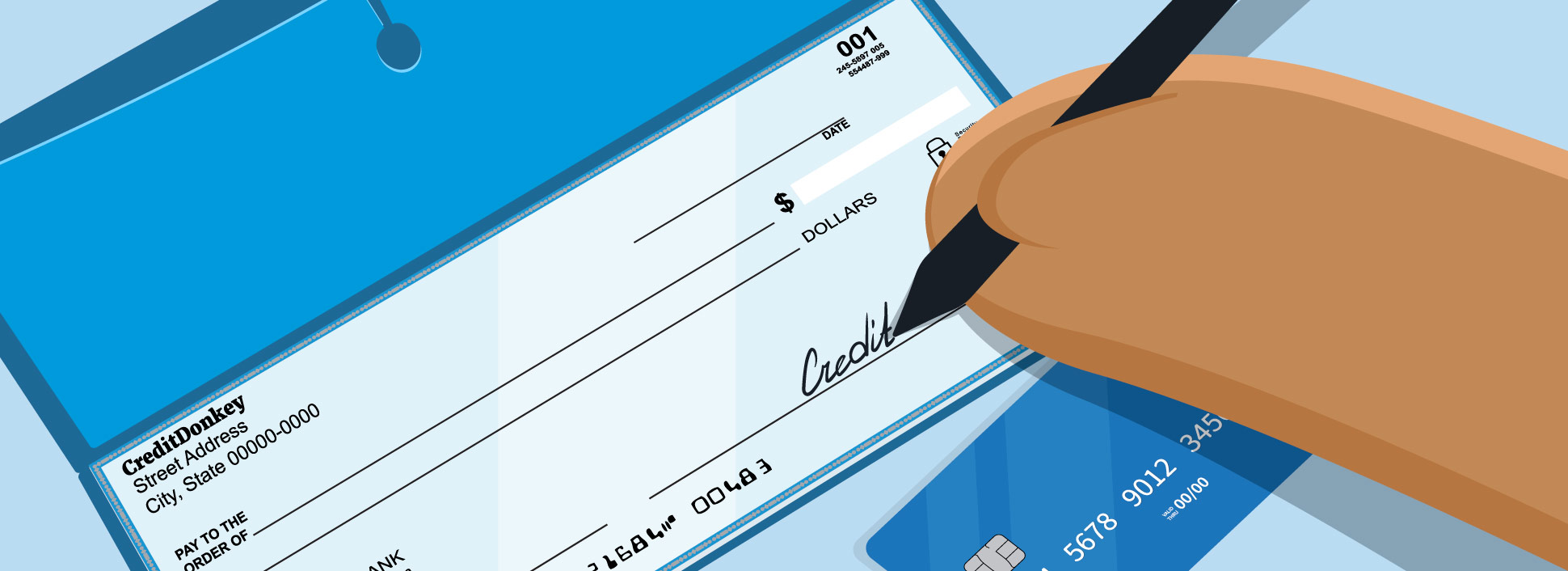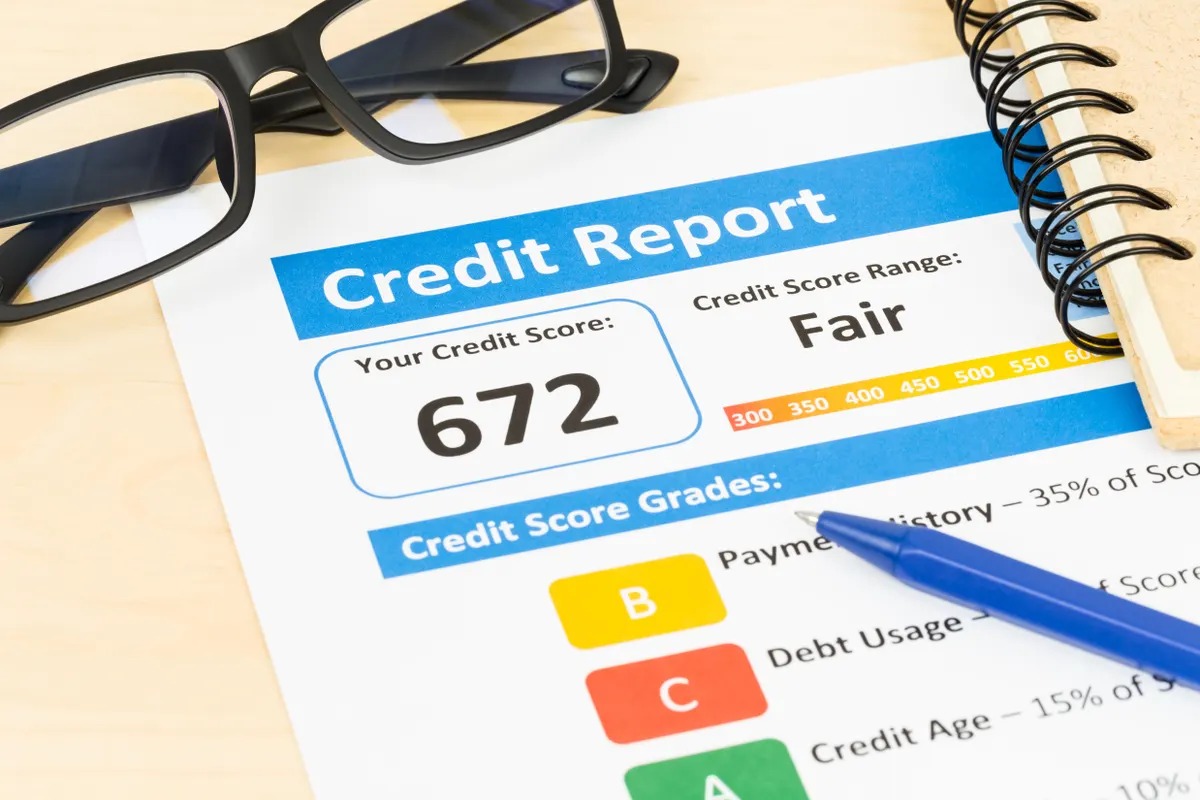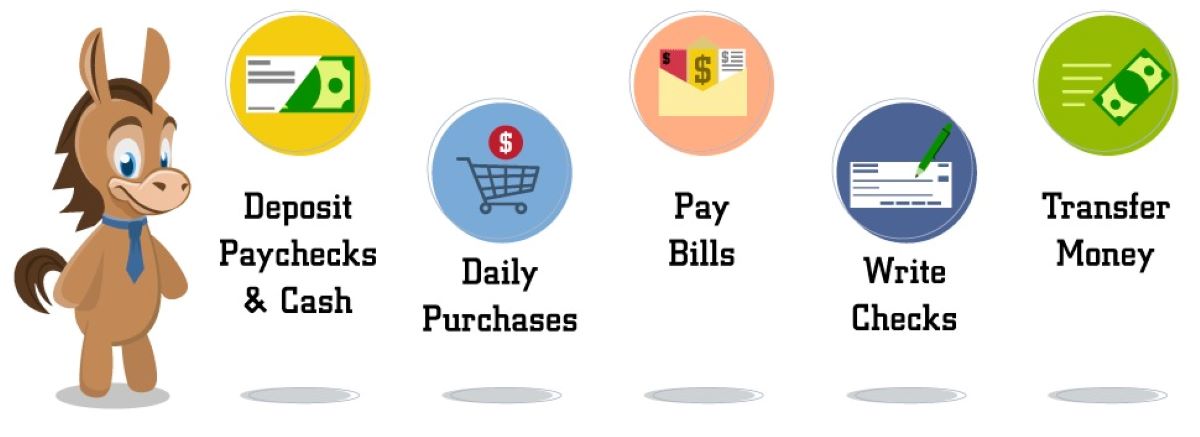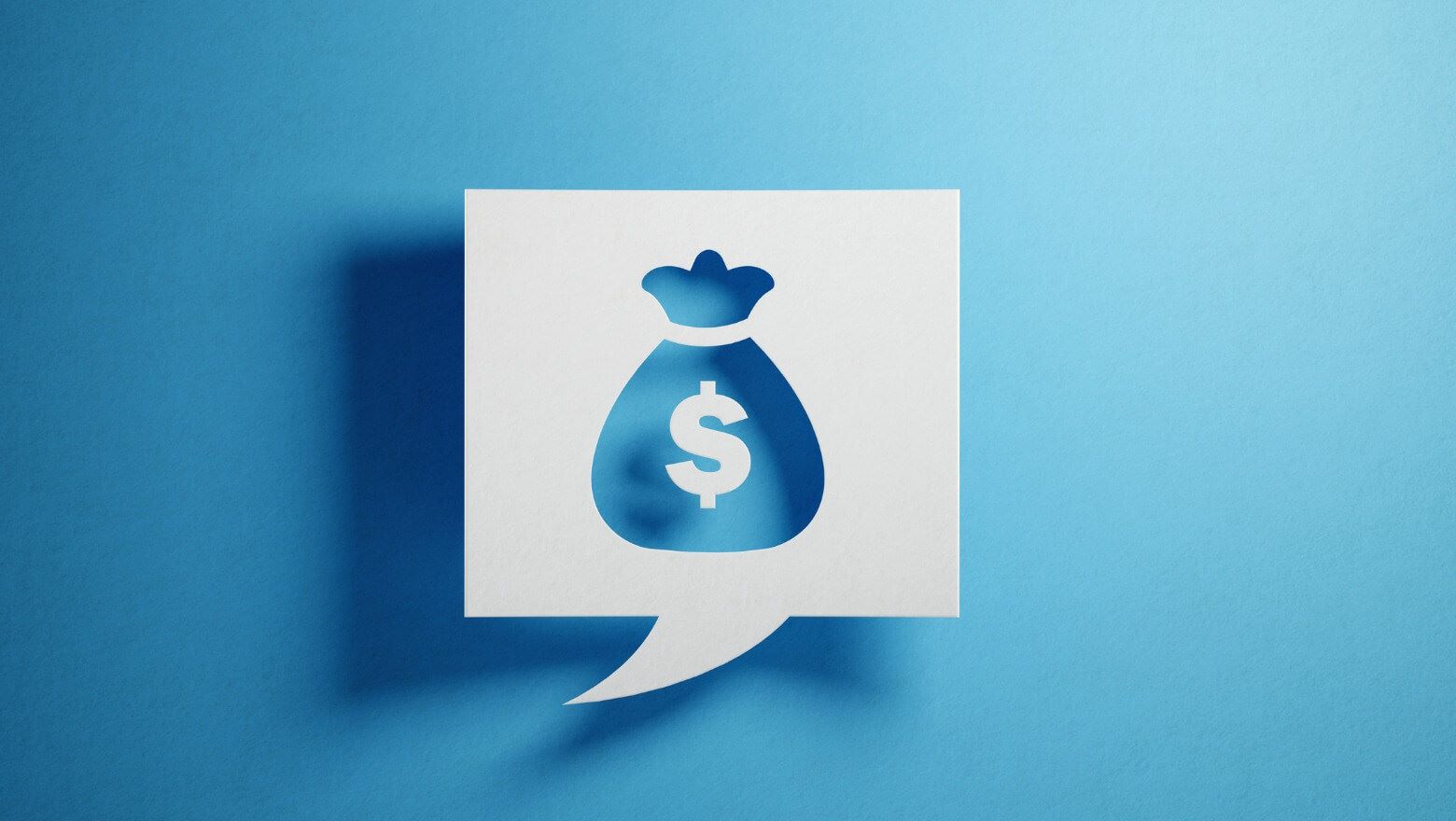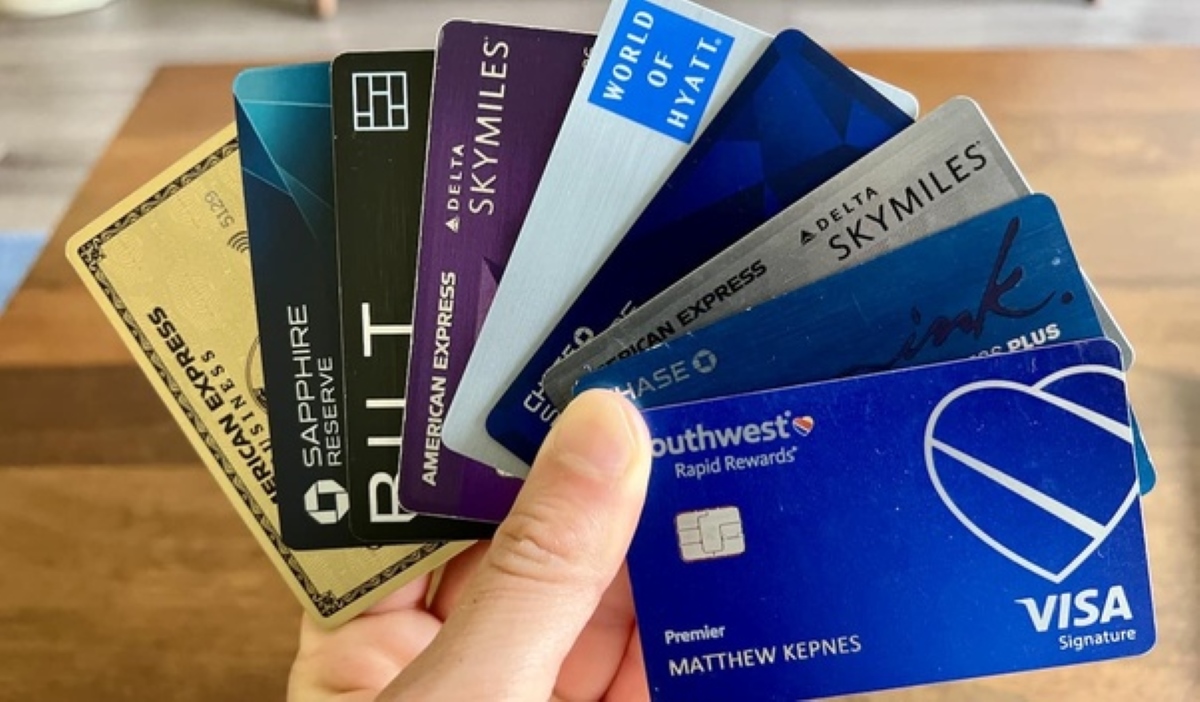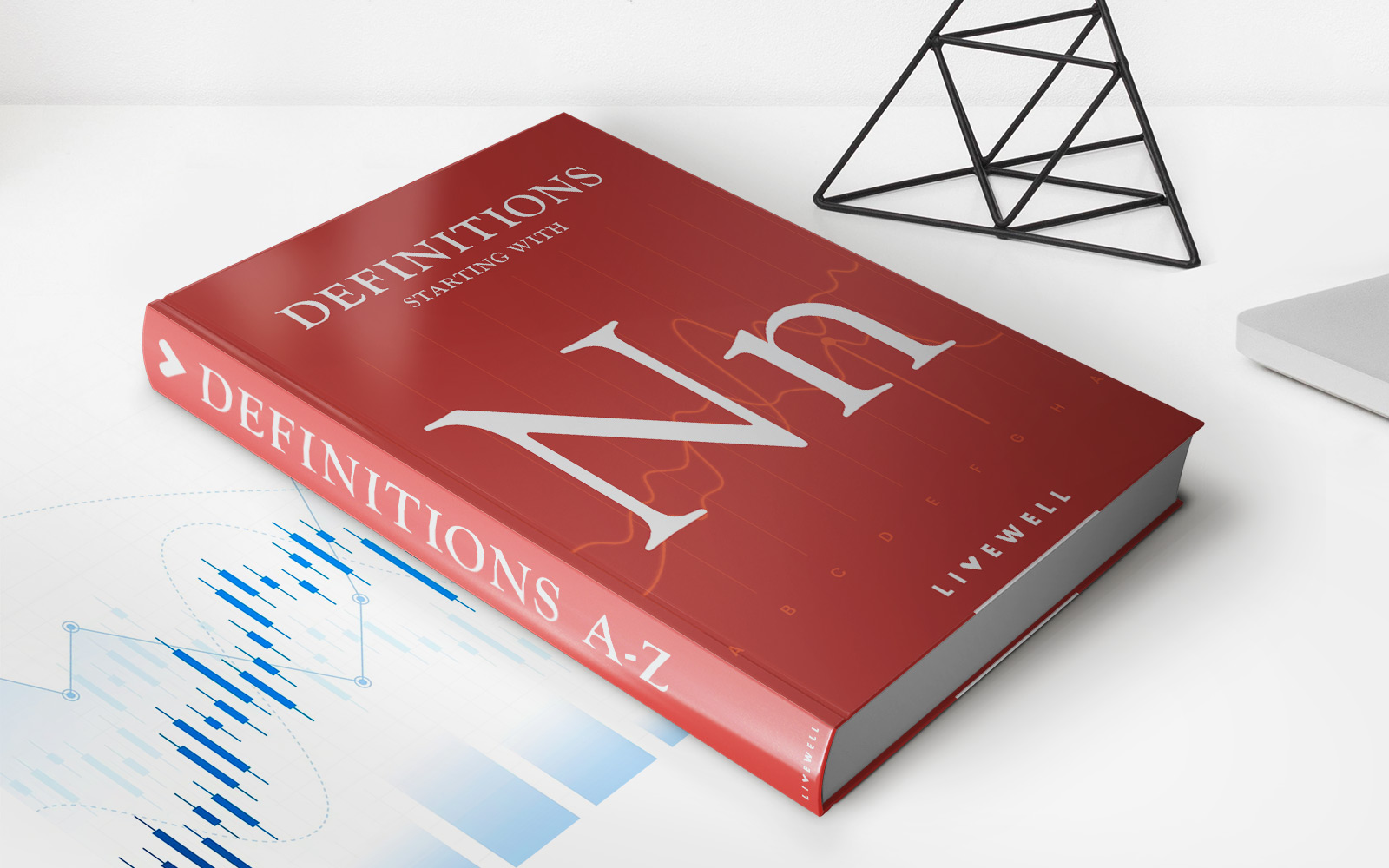Home>Finance>Do Banks Check Your Credit Score When Opening A Checking Account


Finance
Do Banks Check Your Credit Score When Opening A Checking Account
Modified: February 21, 2024
Find out if banks check your credit score for opening a checking account. Get insights into the finance aspect and how it may impact your eligibility.
(Many of the links in this article redirect to a specific reviewed product. Your purchase of these products through affiliate links helps to generate commission for LiveWell, at no extra cost. Learn more)
Table of Contents
Introduction
Welcome to the world of banking! Whether you’re a first-time account opener or someone looking to switch banks, one question that often arises is – do banks check your credit score when opening a checking account? This is a valid concern, as your credit score plays a significant role when applying for loans or credit cards. However, when it comes to opening a checking account, the answer might surprise you.
While credit scores are an important factor for lenders, they don’t hold the same weight when it comes to checking accounts. Unlike loans or credit cards, checking accounts aren’t a form of credit. They are purely transactional accounts meant for everyday banking activities, like depositing paychecks, paying bills, and making purchases.
So, if credit scores aren’t influential in the process of opening a checking account, what exactly do banks consider? This article will dive deeper into the factors that banks take into account and discuss alternative options for individuals with poor credit.
By the end of this article, you’ll have a clearer understanding of whether banks check your credit score when opening a checking account and what other factors are considered. Let’s get started!
Understanding Credit Scores
Before we delve into whether banks check your credit score when opening a checking account, let’s first understand what credit scores are and how they are determined. Your credit score is a numeric representation of your creditworthiness, calculated based on your credit history, payment behavior, and other financial factors.
The most common credit scoring model used by lenders is the FICO score, which ranges from 300 to 850. A higher score indicates a lower credit risk, making it more likely for you to get approved for loans and credit cards at favorable interest rates.
Credit scores are determined by various factors, including:
- Payment History: This includes late payments, defaults, or any delinquent accounts on your credit report.
- Credit Utilization: This refers to the percentage of your available credit that you’re currently using. A high utilization rate can negatively impact your credit score.
- Length of Credit History: The longer your credit history, the better. Lenders prefer borrowers with a well-established credit history as it demonstrates their ability to manage credit responsibly over time.
- Credit Mix: Having a diverse mix of credit accounts, such as credit cards, loans, and mortgages, can positively impact your credit score.
- New Credit Inquiries: Each time you apply for new credit, it generates a hard inquiry on your credit report. Multiple inquiries within a short period can lower your credit score.
Now that we have a basic understanding of credit scores, let’s explore if banks consider these scores when opening a checking account.
Opening a Checking Account
Opening a checking account is a straightforward process that allows you to manage your day-to-day finances effectively. It provides a safe place to deposit your funds, allows you to make payments and withdrawals, and offers the convenience of online banking.
When it comes to opening a checking account, banks typically require a few essential documents and information from you. These may include:
- Identification: Banks need to verify your identity, so they will typically ask for a valid government-issued ID, such as a driver’s license or passport.
- Proof of Address: You will need to provide proof of your current address, such as a utility bill or a lease agreement.
- Social Security Number: Banks may require your Social Security number for identification and reporting purposes.
- Initial Deposit: Some banks may require an initial deposit to open the checking account. The amount may vary depending on the bank and the type of account you choose.
These are the basic requirements for opening a checking account. However, it is important to note that the process may vary slightly from bank to bank. Some banks may have additional requirements or ask for more documentation. It’s best to contact your chosen bank beforehand to ensure you have all the necessary information.
Now that we understand the process of opening a checking account, let’s explore the question – do banks check your credit score when opening a checking account?
Do Banks Check Your Credit Score?
When it comes to opening a checking account, banks generally do not check your credit score. Unlike loans or credit cards, checking accounts are not a form of credit. They do not involve lending money or extending credit to you. Instead, they are transactional accounts meant for everyday banking activities.
While your credit score may not be a determining factor in opening a checking account, it’s essential to remember that banks still have the right to verify your identity and assess your financial history. They may utilize different tools and systems to screen applicants for potential risks.
One of the common systems used by banks is called ChexSystems. ChexSystems is a consumer reporting agency that maintains a database of individuals’ banking histories, including any negative marks or issues with previous bank accounts. It helps banks identify customers who may have a history of mishandling their accounts, such as unpaid overdraft fees or bounced checks.
However, it’s important to note that ChexSystems does not provide information on your credit score. Instead, it focuses on your banking history and any negative banking incidents that may have occurred in the past. Therefore, even if you have a poor credit score, it doesn’t necessarily mean you will be denied a checking account. Banks primarily use ChexSystems to assess your banking behavior rather than looking at your creditworthiness.
If you have had issues with previous bank accounts that are reflected in ChexSystems, it may become more challenging to open a traditional checking account. In such cases, it’s advisable to explore alternative options specifically designed for individuals with poor credit or a negative banking history.
In the following section, we will discuss the factors that banks consider when opening a checking account and discuss alternative options available for individuals who face difficulties due to poor credit or ChexSystems reports.
Factors Banks Consider
While banks may not check your credit score when opening a checking account, they do consider other factors to assess your eligibility. These factors help banks determine whether you are financially responsible and can maintain a positive banking relationship. Here are some of the key factors that banks often take into account:
- ChexSystems Report: As mentioned earlier, banks may review your ChexSystems report to assess your past banking behavior. They want to ensure that you have not engaged in fraudulent activities or have a history of mishandling bank accounts.
- Identity Verification: Banks will verify your identity using your government-issued ID, Social Security number, and proof of address. This ensures they are opening an account for the right individual and prevents potential fraud.
- Account History with the Bank: If you have a history with the bank, such as existing accounts or a good standing with previous accounts, it can positively impact your chances of opening a checking account.
- Ability to Meet Account Requirements: Some banks have specific requirements for opening a checking account, such as maintaining a minimum balance, setting up direct deposit, or meeting other criteria. Your willingness to fulfill these requirements can affect your eligibility.
- Outstanding Debts to the Bank: If you have any outstanding debts or unpaid fees with the bank, it may hinder your ability to open a new checking account until those obligations are resolved.
- Other Relevant Factors: Banks may also consider additional factors, such as your employment status, income level, and overall financial stability.
It’s important to note that these factors may vary from bank to bank, and not all banks have the same eligibility criteria. Some banks may be more lenient, while others may have stricter requirements. It’s always a good idea to inquire with your chosen bank regarding their specific criteria for opening a checking account.
Now that we have discussed the factors banks consider, let’s explore the impact of ChexSystems and alternatives for individuals who face difficulties opening a traditional checking account.
The Impact of ChexSystems
ChexSystems plays a significant role in the banking industry by providing banks with information about individuals’ past banking behavior and potential risks. However, having a negative report in ChexSystems can have an impact on your ability to open a traditional checking account.
If you have a history of bounced checks, unpaid overdraft fees, or other negative incidents with previous bank accounts, it will be recorded in your ChexSystems report. When you apply for a new checking account, banks may review this report and assess the level of risk you pose as a customer.
Having a negative record in ChexSystems can result in the following challenges:
- Account Denials: Banks may deny your application for a checking account if they see a negative report in ChexSystems. This can be frustrating, especially if you are trying to establish a new banking relationship.
- Limited Banking Options: Having a negative record in ChexSystems can limit your options for traditional checking accounts. Many major banks and financial institutions rely on ChexSystems, making it difficult to find a bank that will accept your application.
- Higher Fees: If you are able to open a checking account with a negative report in ChexSystems, the bank may impose higher fees and restrictions due to the perceived risk. This can make banking more expensive and potentially inconvenient for you.
- Difficulty Getting Overdraft Protection: Overdraft protection is a service that allows you to withdraw more money than is available in your account, but it can be harder to obtain if you have a negative ChexSystems report.
While a negative ChexSystems report can make it challenging to open a traditional checking account, it’s important to know that alternatives exist for individuals in these circumstances.
In the next section, we will explore some alternative options that can help you gain access to banking services despite having a negative ChexSystems report or poor credit.
Alternative Options for Individuals with Poor Credit
If you have poor credit or a negative ChexSystems report, don’t worry! There are alternative options available that can help you access essential banking services. Here are a few alternatives to consider:
- Second-Chance Checking Accounts: Some banks offer second-chance checking accounts specifically designed for individuals with a history of banking issues. These accounts often have certain restrictions or fees, but they provide an opportunity to rebuild your banking relationship and demonstrate responsible financial behavior.
- Credit Unions: Credit unions are non-profit financial institutions that may be more lenient when it comes to credit history or ChexSystems reports. They often offer more personalized services and may be willing to work with you to find a suitable banking solution.
- Online Banks: Online banks are becoming increasingly popular and may have less stringent requirements compared to traditional brick-and-mortar banks. They may offer checking accounts with lower fees and more flexible eligibility criteria.
- Prepaid Debit Cards: Prepaid debit cards can be a viable option for individuals who do not qualify for traditional checking accounts. These cards allow you to manage your finances and make payments, but they are not linked to a traditional bank account.
- Local Community Banks: Smaller community banks often have a more personalized approach to banking and may be willing to work with individuals who have poor credit or a negative ChexSystems report. It’s worth exploring options in your local area.
Before choosing an alternative banking option, be sure to do your research, compare fees and features, and understand the terms and conditions. Some options may have higher fees or limitations, so it’s important to choose a solution that aligns with your needs and financial goals.
It’s also crucial to view these alternative options as a stepping stone towards improving your financial situation. With responsible use, timely bill payments, and good financial habits, you can eventually rebuild your credit and regain access to traditional banking services.
Remember, having poor credit or a negative ChexSystems report doesn’t mean you’re destined to be without a checking account. Explore these alternative options and take the first steps towards regaining control of your finances.
Conclusion
Opening a checking account is an essential step in managing your personal finances. While banks typically do not check your credit score when opening a checking account, they still consider other factors such as ChexSystems reports, identity verification, account history, and your ability to meet account requirements.
ChexSystems, a system used by banks to assess banking history, can have an impact on your ability to open a traditional checking account. However, alternative options such as second-chance checking accounts, credit unions, online banks, prepaid debit cards, and local community banks provide opportunities for individuals with poor credit or negative ChexSystems reports to still access essential banking services.
It’s important to thoroughly research and consider these alternative options, comparing fees, features, and eligibility criteria. By demonstrating responsible financial behavior and building a positive banking relationship, you can work towards improving your credit and eventually regain access to traditional banking services.
Remember, your credit score and banking history are not the sole determinants of your financial worthiness. Everyone deserves access to basic banking services, and there are options available to accommodate different financial situations.
Whether you’re starting your financial journey or looking for a fresh start, understanding the factors banks consider when opening a checking account and exploring alternative options can help you make informed decisions and take control of your finances.


